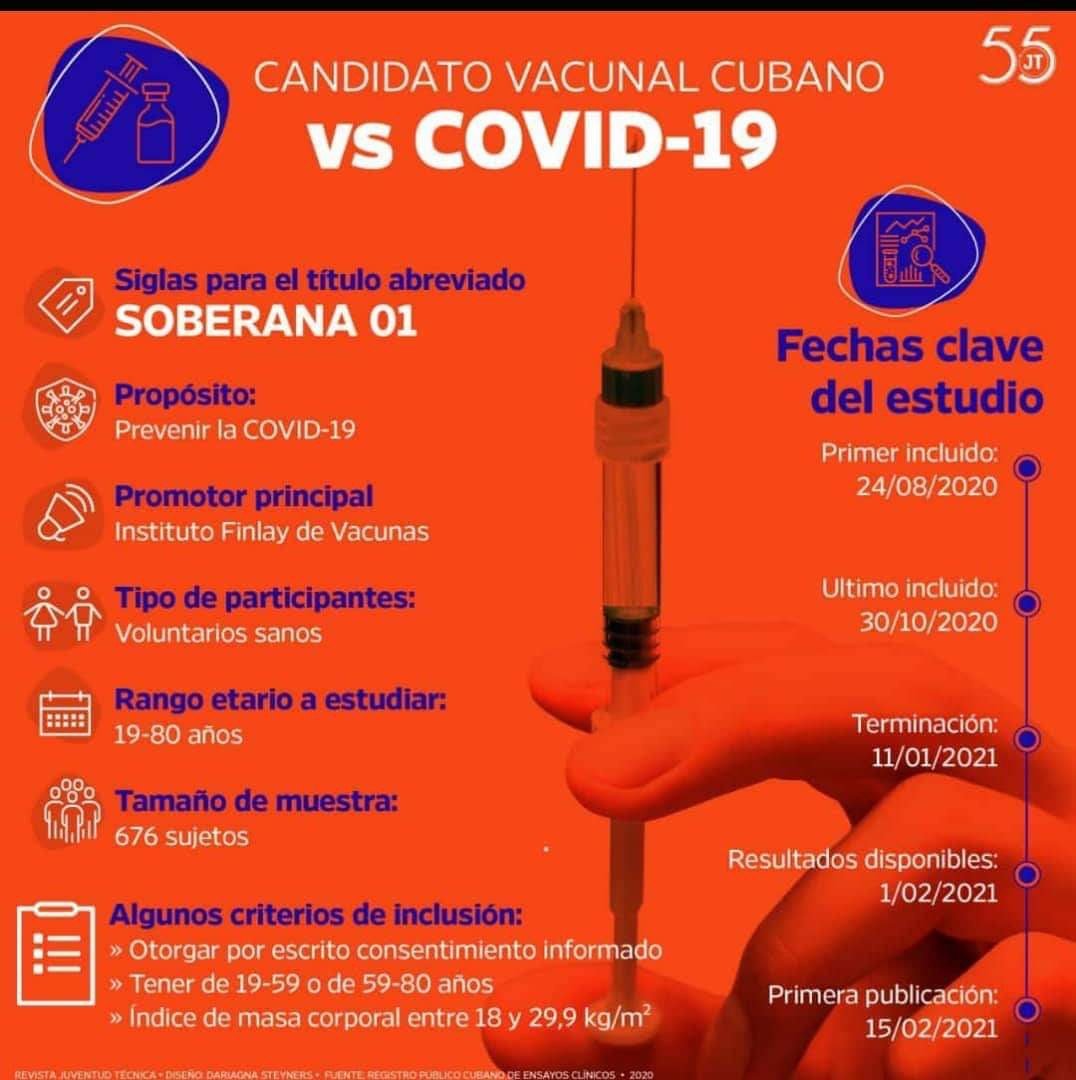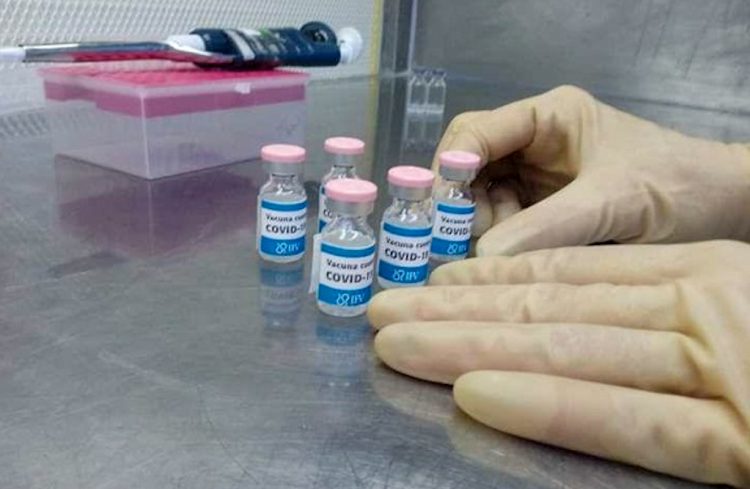The Cuban COVID-19 vaccine project, named Soberana 01, was already tested on July 28 on doctors Vicente Vérez, director of the Finlay Institute of Vaccines (IFV), Yuri Valdés and Dagmar García, all of them principal investigators of the vaccine candidate.
After the test, the island’s three scientists have developed “a high immune response,” which will be confirmed after the second dose is applied in the next few days, as explained by Dr. Vérez quoted by the official Cubadebate website.
With Soberana 01, Cuba took an Olympic leap to enter the select and reduced group of countries that have specific vaccine candidates against the SARS-CoV-2 coronavirus. In fact, the Cuban project is the first in Latin America and already has the authorization of the Cuban regulatory authority on these issues: the Center for State Control of Quality of Medicines (CEDMED).
Cuba to start clinical trials of its own vaccine against new coronavirus
The phase of clinical trials with the vaccine, identified by the acronym FINLAY-FR-1, will begin next Monday, and will be supplied to a group of 20 persons aged between 19 and 59 years old. A week later, the trial will be applied to another twenty volunteers between 60 and 80 years old.
In the second phase, scheduled to begin on September 11, the sample will be expanded to 676 volunteers, including the 40 from the first phase.
During the presentation of the vaccine project, Dr. Vérez referred to the “low risks, few uncertainties and encouraging results” recorded in the preclinical phase, in which the drug was tested in mice and rabbits, and remains on trials on other animals.

*Caption:
CUBAN VACCINE CANDIDATE vs COVID-19
Acronym for abbreviated title
SOBERANA 01
Purpose
Prevent Covid-19
Principal promoter
Finlay Institute of Vaccines
Type of participants:
Healthy volunteers
Age group to be studied:
19-80 years
Size of sample:
675 individuals
Some inclusion criteria:
>> Giving consent in writing
>> Being between 19-59 and 59-80 years old
>> Corporal mass rate between 18 and 29.9 kg/m2
Study’s key dates
First inclusion: 24/08/2020
Last inclusion: 30/10/2020
Termination: 11/01/2021
Available results: 1/02/2021
First publication: 15/02/2021
According to Dr. Dagmar García, on May 22 the RBD (Receptor Binding Domain) antigen was defined for the first time, because it is the most important protein fragment of the virus for its entry into the cell.
“This protein fragment is precisely the region of the virus that interacts with a receptor of the human cell, to penetrate the cell, which is why the vaccine strategy is to direct antibodies against that structure of the virus, with the aim of blocking this interaction of the viral protein with its receptor in the host,” stated García, quoted by Cubadebate.
The researchers wanted to use a vaccine platform in which they had previous experience, so they decided to combine this antigen with the meningococcal B outer membrane vesicle platform, which is the basis of the Cuban VA-MENGOC- BC® meningococcal meningitis vaccine.
According to Dr. García, “this element offers a lot of security to this vaccine candidate, because it is based on the platform of a vaccine that has been in use for more than 30 years. This immunogen also solved an epidemiological problem in the country and is used in the expanded immunization program, even in infants, with safety and high efficacy, which transmits peace of mind.”
https://twitter.com/FinlayInstituto/status/1296268854138634244?ref_src=twsrc%5Etfw%7Ctwcamp%5Etweetembed%7Ctwterm%5E1296268854138634244%7Ctwgr%5E&ref_url=https%3A%2F%2Foncubanews.1eye.us%2Fcuba%2Fcuba-proyecto-de-vacuna-contra-la-covid-19-ya-fue-probado-en-tres-investigadores%2F
The research director of the Finlay Institute affirmed that, if the vaccine demonstrates efficacy in clinical trials, the island’s biotechnology and pharmaceutical industry has the capacity to produce the millions of doses necessary to immunize the Cuban population, and even for export.
Soberana 01 is the result of the collaboration of the Cuban government with its scientific institutions in the search for solutions to the COVID-19 pandemic.
In addition to the Finlay Institute of Vaccines and the Molecular Immunology Center, the Faculty of Chemistry of the University of Havana, the molecular biology laboratory of the Civil Defense Research Center and the Center for Genetic Engineering and Biotechnology are participating in the project.
The institutions’ alliance also involves the National Toxicology Center as the main site for the candidate’s clinical trials, and the Pedro Kourí Institute of Tropical Medicine (IPK).










